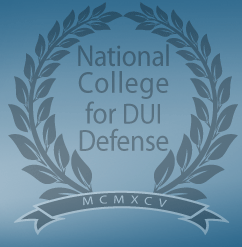An Indianapolis police officer suspended of his duties has been arrested and charged with DWI for the second time, Fox59 reports.
Over the weekend, David Bisard admitted to driving drunk after he struck a utility pole and guard rail.
When an officer arrived the accident scene, Bisard blew a .17% on a Breathalyzer test which is over twice the legal limit in Indiana. He was then arrested and booked in jail.
Bisard told Indianapolis Metro Police, “I know you know who I am. I messed up today. If you guys can cut me a break I promise I will never drink again,” Indiana News Center reports. He reportedly repeated he was guilty of driving drunk in the latest incident, but was not drinking the day of “that other crash.”
Bisard was referring to the 2010 crash he caused while driving with .19% BAC. While on duty, he allegedly crashed into two motorcycles that killed one person.







